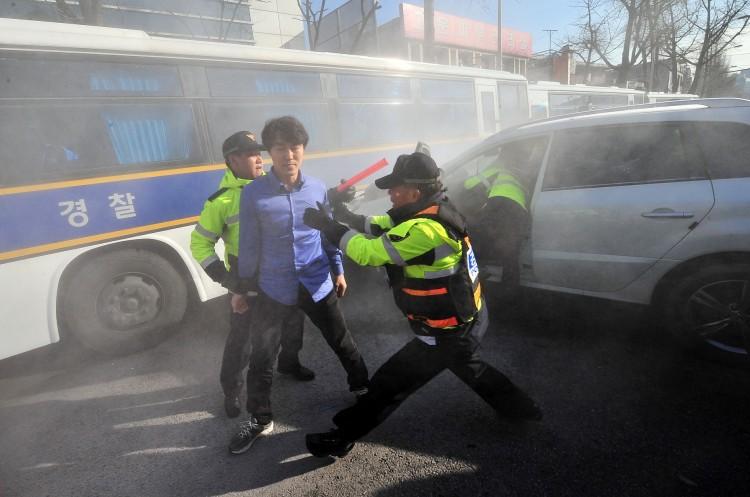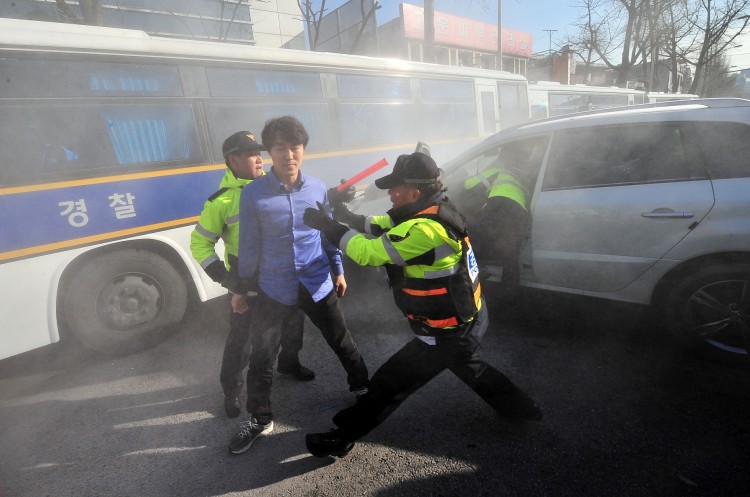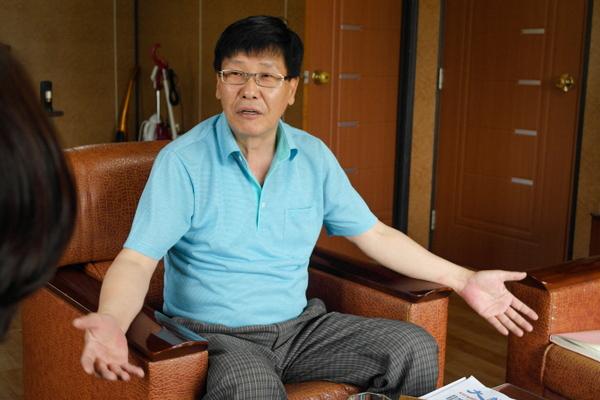Several hundred Koreans gathered in front of the Chinese embassy in Seoul, South Korea, on Dec. 13 to express their anger over the slaying of a South Korean coast guard by a Chinese sea captain.
South Korean activists held up anti-Chinese banners in front of the Chinese embassy while loudly shouting “Punish the murderers!” and other slogans. They also condemned what they perceived as an unapologetic attitude by the Chinese regime, and the South Korean government’s weak diplomatic stance toward China.
On the morning of Dec. 12, while investigating illegal fishing about 120 miles west of Incheon near the North Korean border, Li Qing, a South Korean coast guard sergeant, was stabbed to death by Cheng Dawei, captain of the Chinese fishing boat Lu Wen Yu. Another Korean coast guard, Li Luoxun, was seriously injured. The Chinese captain was arrested and the ship and crew were taken to Inceon.
South Korea’s Foreign Ministry summoned Chinese ambassador, Zhang Xinsen and lodged a protest. Chinese Foreign Ministry spokesperson Liu Weimin said at a news conference that Chinese authorities were looking into the incident and would “fully cooperate” with South Korean authorities.
Many South Koreans were not convinced that justice would be done. Similar incidents of poaching by Chinese fishing crews in South Korean waters and violent clashes with the coast guard have been very frequent in recent years. Since last November the South Korean government has asked China on seven occasions to work with them, but Chinese officials have rejected such requests, saying it is difficult to trace boats, which don’t have a fishing license.
Chinese fishing boats were allowed to fish in South Korean fishing grounds before the two countries entered into a fisheries agreement in 2001. But since the signing of the agreement Chinese fishing boats have to pay for a fishing quota permit in South Korean waters, or else it is considered illegal fishing.
Protesters said Chinese officials have not acknowledged the legitimacy of this matter, nor have they offered an apology to the South Korean government and to the victims.
Korean police parked six police buses in front of the embassy as part of security measures. 10 minutes into the protest, a man intentionally crashed his SUV several times into one of the buses. He was taken away by police.
People unsuccessfully tried to break through police lines into the embassy.
Protestors also said the South Korean government’s weak diplomatic stance toward China, in particular in relation to two attacks from North Korea in recent years.
One was North Korea’s sinking of South Korea’s naval ship Cheonan in March 2010, in which 50 South Korean soldiers and civilians lost their lives; the other, North Korea’s bombing of Yeonpyeong Island in Nov. 2010.
The Chinese regime has been a longtime ally and backer of North Korea. Adopting a weak diplomatic posture towards China makes South Koreans feel even more humiliated, protesters said.
This year, 58 Chinese fishermen who clashed with South Korean coast guards were captured and subsequently released on probation by the courts. Protesters said the South Korean government should take a tougher stance to curb the frequency of such incidents.





